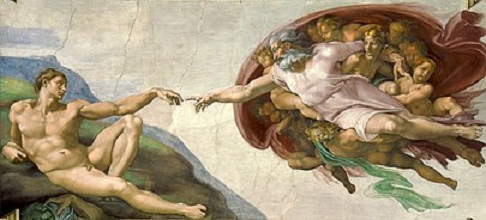
Courtesy of wikipedia.org
The Lord is in control, the Facebook entry said.
I’m not religious, but I often find “Thank you, Jesus,” remarks threaded through my feed page. Mostly, I ignore or delete them. But on the day this one popped onto my computer screen, I was in a different state of mind. If God is in control, then why should we make an effort? I responded.
The reply was swift. Our efforts are under his control. Without Him, they wouldn’t yield anything. So he’s in control of everything.
Noting the argument was circular, I asked the writer if he saw circularity as a problem. He answered with a question. What exactly do you want Madam Miller?
Clarity, I replied.
The United Negro College has a motto I’ve long admired. The mind is a terrible thing to waste. In my world, if sin exists, it is the wilful neglect of thought. Even the pious must admit Reason is a gift from god. Nonetheless, most of them seem to value Faith above Reason, which I why I oppose the voucher system in public education. So many of these private institutions are religious-based, and having found a back door to free money, they bleed and weaken the public school system.
Indifferent to the Constitution’s intent to keep a wall between Church and State, parents who support voucher schools probably feel they have a right to send their children to institutions that reflect their values. They too, are taxpayers, after all. But these individuals are wrong in their assumptions. Free education does not exist for the benefit of students or the benefit of their parents. It exists for the benefit of the social order. (John Green) Cohesion, not religious indoctrination, is the name of the game.
Only 19 states preserve public funds solely for public education. (“Vouchers for religious schools expanding,” FFRF, June-July 2023, pg. 7.) The remaining numbers allow voucher programs, oblivious, apparently, to studies that show graduates of these private institutions are less well-educated than their public school peers.
Admittedly, Faith and Reason are branches of the same tree. Both arise from our early desire to understand our place in the universe. Human survival depended upon that understanding. Absent fangs or claws, primitive man had only two ways of responding to danger–fight or flight. Those who waited in the waving grass long enough to see the lion’s eyes were eaten. Those who saw the grass bend and ran away from a possible predator lived another day.
This hypersensitivity to changes in the landscape became encoded in the survivors’ genes. From there it was a short hop to linking cause with effect. If grass bends, warning us of danger, other forces of nature might be doing the same. When primitive minds assigned intent to these signals, then inanimate objects that either benefited or hurt us, like volcanoes, the winds, or the sun, became gods.
Religion not only helped us explain our surrounding world, but it developed a community of like minds. It provided social cohesion.
Even so, some of our ancestors continued to explore the world in greater detail, hoping to uncover some of its mysteries. Their quest proved to be rich with wonder. A god may have created the rose, but its anatomy was no less fascinating. Eventually, humans learned that, godly or not, Nature conformed to a set of laws.
The discovery was key to opening the door to science. Once opened, more findings followed. They lead to Einstein’s theory of relativity, for example, and gave us a glimpse of the quantum world. Using this cursory knowledge of a new dimension, Google has built a quantum computer, the first of its kind. In a minute, It can perform calculations that would take an ordinary supercomputer 47 years to complete.
Imagine what we can learn when knowledge accumulates faster than the speed of light. Will we come to see ourselves as omniscient? If so, we face a conundrum. With so much knowledge at our fingertips, what ethics will guide us? Needless to say, we must have standards, or we will become prey to rogue actors who are willing to put personal power and profit ahead of the common good.
Perhaps one-day quantum computing will reveal the face of god. The revelation is one devoutly to be sought, for only a Being both omniscient and omnipotent will have the authority to guide us. If no god exists, then, for the sake of social cohesion, humans will have to invent one.
